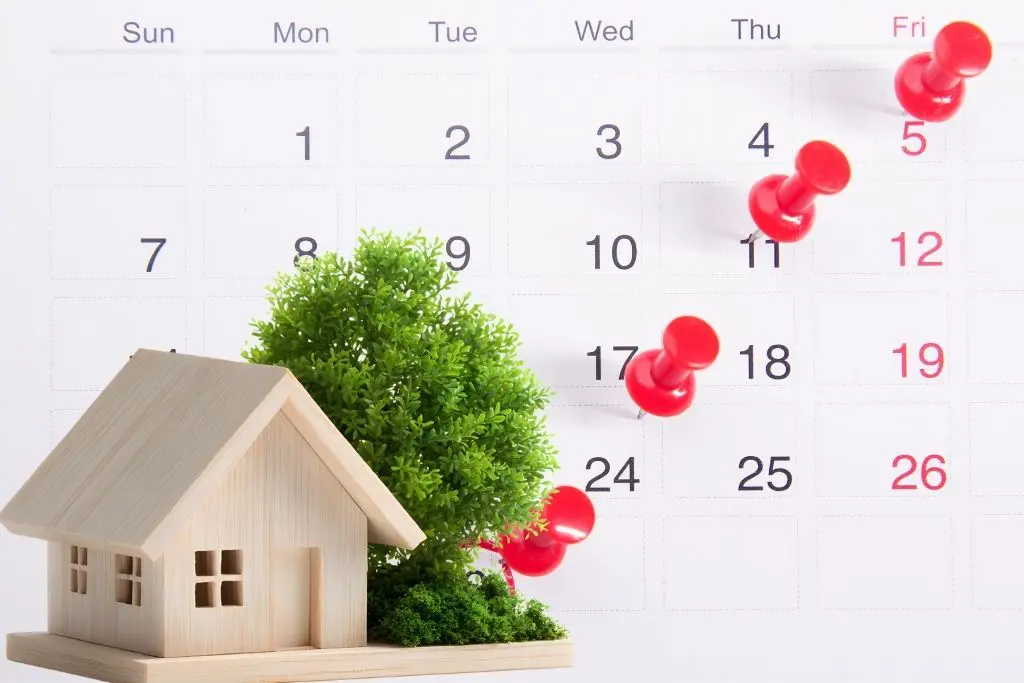Choosing when to close on a house sale really shapes how smoothly things wrap up and how soon you actually get paid. The timing impacts everything from the buyers’ first mortgage payment to how much interest and taxes get settled during the closing process. An early closing date or a late one can shift a seller’s cash flow and overall convenience in ways you might not expect.

If you understand how closing timing works, you’re in a better spot to negotiate. Late-month closings can cut down on prepaid interest and sometimes move things along faster, while early-month closings offer more breathing room for logistics and paperwork. Both have trade-offs that affect your short-term finances and your post-sale plans.
Understanding The Closing Date: Why It Matters To You, The Seller
The closing day is the day ownership officially changes hands, money moves, and you’re finally off the hook for the property. It impacts your payment schedule, moving plans, and how long you remain responsible for your current home.
A closing date is the scheduled day when a property sale becomes final. On that day, the buyers sign their mortgage loan papers, you sign the deed, and the title changes hands. This date in the purchase contract can sometimes shift due to hiccups with financing or paperwork.
For sellers, closing is when you get the cash and pass on all legal responsibility. You’ll check the final settlement statement, pay off your mortgage, and cover your closing costs. Closing near the end of the month means you might save money on prorated property taxes or interest.
Key documents signed at closing:
- Settlement statement (shows all credits and debits)
- Deed transfer
- Affidavits confirming no tax liens or undisclosed issues
Seller’s Role In Setting The Closing Date
Sellers typically propose or negotiate the closing date when an offer comes in. You must decide on a date that fits both your move-out plans and the buyers’ loan process.
You coordinate with the buyer’s real estate agent, the title company, the lender, and other parties. If you need to stay after closing, you can ask for a post-closing occupancy agreement. You must complete all repairs and ensure the pre closing walkthroughs go smoothly, as missing steps can kill the deal.
Tips for sellers when finalizing the date:
- Nail down your mortgage payoff details early.
- Get movers and utilities lined up ahead of time.
- Keep other parties informed of any potential delays.
The Advantages And Disadvantages Of An Early Closing Date
Opting for an early closing means you get your cash faster, pay less in ongoing expenses, and dodge uncertainty, resulting in a better overall closing experience.
- Quicker Access To Sale Funds: Close early and your money’s in hand sooner. This is vital if you need cash for debts or for your next home purchase. You spend less time with your money tied up in escrow.
- Reduced Carrying Costs: Every extra day you own the property means more mortgage interest, taxes, and homeowners insurance. Early closing cuts these costs and helps you save money.
- Faster Transition: If buying a new home, early closing makes the move less chaotic. You get proceeds sooner, crucial for a down payment on your new property.
- Minimizing Market Risk: Getting the deal done early limits exposure to market swings, buyer hiccups, or random delays.
On the flip side, an early closing can squeeze your timeline and cause stress.
- Rushed Move-Out Timeline: Closing sooner than expected means scrambling to pack and move. This increases the odds of mistakes during the final walkthrough or unexpected costs like temporary housing before your new home is ready.
- Higher Upfront Interest Costs For Buyers: An early closing hits the buyers with higher prepaid interest. This can stretch their budget and may make them push for concessions or delays, as their mortgage payments will start sooner, with the second month meaning the first full payment.
- Coordination Challenges: If selling your current home and buying simultaneously, early closing can complicate coordination. You might need a rent-back or face paying cash for storage.
The Advantages And Disadvantages Of A Late Closing Date
A later closing date buys you time – more flexibility for moving and a better chance to line up your new house.
- Ample Time For Logistical Planning: A late closing lets you schedule movers and utilities without scrambling, ensuring a thorough cleaning and walkthrough.
- Smoother Coordination with Purchase: If you’re buying and selling at once, a later closing helps you sync the process, avoiding two mortgage payments or the need for temporary housing.
- Lower Upfront Interest For Buyers: Buyers typically prefer late closings because they pay less prepaid interest. This can make your property more attractive.
- Buffer Period For Delays: Deals often get delayed. A late closing gives you a built-in cushion so you’re not scrambling to avoid breaking the purchase contract.
However, pushing the date back has drawbacks.
- Extended Carrying Costs: When the closing process drags on, you keep paying mortgage interest, taxes, and insurance until it’s done, which chips away at your final payout.
- Prolonged Market Exposure: A late closing keeps the property stuck in pending status. This exposure is a gamble if local conditions shift or the buyer walks away.
- Risks with Buyer’s Loan: If closing drags, the buyer’s rate lock might expire, potentially increasing their loan costs or causing them to lose financing. Lenders usually stick to their official policy regarding rate lock extensions.
Strategic Considerations For Choosing A Closing Date
Picking a date is a balancing act between your finances, readiness to move, and the buyers’ needs. You must carefully decide on the best date.
- Aligning With Your Next Move: Sync your sale with your next home purchase to avoid paying for two places. Get all move-in/move-out dates in writing.
- Understanding Buyer Preferences: Knowing why a buyer wants a certain date gives you leverage. Flexibility might earn you better price or terms.
- Avoiding Peak Closing Times: Try to avoid the end of the month; things get clogged at title companies and lenders. Mid-month or mid-week is typically calmer.
- Impact of Contingencies and Rate Locks: Review the inspection report and all other contingencies early. Buyers’ mortgage rate locks last 30 to 60 days; match the closing date to the lock expiry to prevent drama. You want the title search completed before the closing day.
| Contingency Type | Typical Duration | Seller Consideration |
| Financing | 30–45 days | Check in with the lender often |
| Inspection | 7–14 days | Respond to repair requests fast |
| Appraisal | 10–20 days | Get it scheduled early |
- Effective Negotiation: Negotiating the date is about finding middle ground with other parties. Be flexible to potentially get better terms elsewhere. Always put date changes in writing and confirm the buyer’s lender is ready to fund.
Frequently Asked Questions
Can A Seller Change The Closing Date?
Yes, but both the seller and the buyer must agree and sign a written amendment to the purchase contract.
What If The Buyer’s Loan Is Delayed?
Check the financing contingency. If the delay extends past the deadline, you can usually cancel the contract or grant a written extension, sometimes with per diem fees to cover your closing costs.
What Is A Leaseback Agreement?
A leaseback agreement lets the seller remain in the house after closing for a short period, paying rent to the new owner. This is helpful if your new property isn’t ready.
How Far In Advance Is The Closing Date Finalized?
Closing details are typically nailed down a few days to a week before the official policy date. Last-minute changes are possible but can cause serious disruption to the closing experience.
